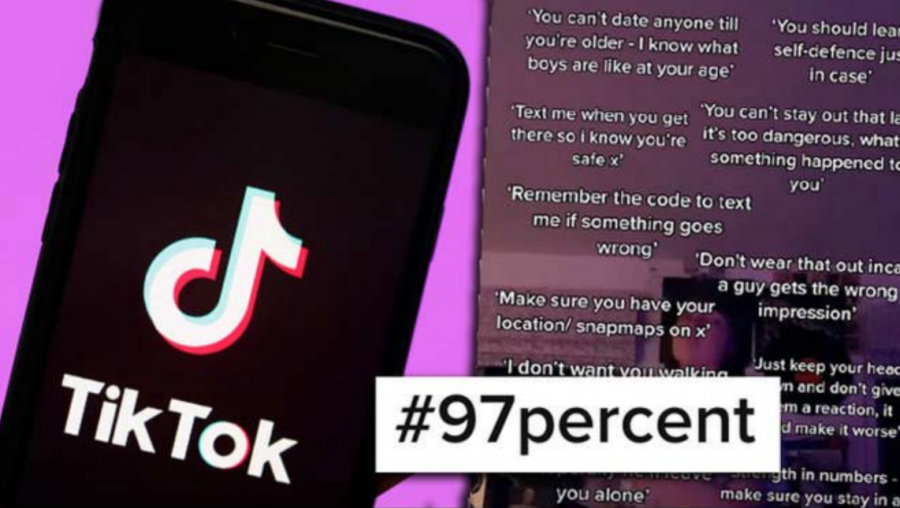97% of Women
April 30, 2021
COVID-19 isn’t the only pandemic deeply affecting the global population — violence against women has been an unrecognized issue, and it is only just beginning to receive the attention it deserves. In recent years, there have been many movements dedicated to calling out injustice and prejudice due to gender. A recent example is the MeToo movement, which held people, the vast majority being men of the highest status in Hollywood and the government, accountable for accusations of sexual harassment, assault, and misconduct. Now in 2021, a new initiative started by TikTok users who are working to protect all women, no matter who they are or where they are located, has taken center stage.
Earlier this year on March 3rd, Sarah Everard, a 33-year-old woman from London, was kidnapped and murdered. It was not until seven days later that police officers found her body, and even then she was only identified due to dental records. Everard, a woman walking by herself at 9:30 pm, chose to walk on well-lit streets and called her boyfriend on the phone on her way home. This story quickly took social media by storm as it proved that no woman is safe from violence. Although Sarah’s story has deeply struck many in and of itself, it has opened up a conversation around all of the statistics and experiences that women face solely based on gender. This outrage, on behalf of Sarah as well as all of the other women who have spoken up on gender-based violence, started a trend on TikTok, which was quickly coined the “97% trend.”
This statistic has been attributed to the social media trend mainly because of its shocking meaning. In a survey done by the U.N. Women U.K., 97% of the 1,000 women asked, reported that they have experienced some type of sexual harassment in a public place. This harrowing statistic has been used by women everywhere to bring their own stories of sexual violence to the spotlight. TikTok has made this easy, as the platform allows all users to share their experiences in short videos to the world, regardless of who they are following. This trend has inspired so many women to speak out about their trauma, which is proven to be a helpful way of coping with difficult situations and experiences.
While the overwhelming response to the participants and the victims coming forward through this trend has been extremely positive, there has also been backlash from some men on the app. These people have, as a rebuttal, coined the phrase, “Not All Men” to claim innocence as someone who has never partaken in sexual harassment or violence. This counter-trend, however, was quickly shut down by the larger TikTok community. As the 97% statistic shows, many have said that it is not all men who are guilty of sexual harassment, but it is extremely close to being all women affected by this issue. The trend has been defended from then on as being one to support victims instead of redeeming men, guilty or innocent.
As this trend has already begun to slow down and the topic is being quickly dismissed from the media, it is important to remember the overarching theme of this issue: until society changes, no woman is safe from sexual violence. Just because the trend has died down, the problem has not been erased. The story of Sarah Everard proves that it could be anyone, at any time, coming from any place.
